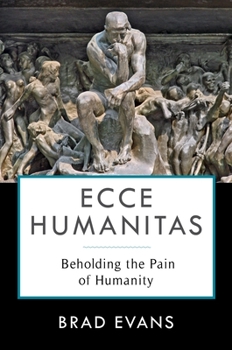Ecce Humanitas: Beholding the Pain of Humanity
(Part of the Insurrections: Critical Studies in Religion, Politics, and Culture Series)
Select Format
Select Condition 
Book Overview
The very idea of humanity seems to be in crisis. Born in the ashes of devastation after the slaughter of millions, the liberal conception of humanity imagined a suffering victim in need of salvation. Today, this figure appears less and less capable of galvanizing the political imagination. But without it, how are we to respond to the inhumane violence that overwhelms our political and philosophical registers? How can we make sense of the violence that was carried out in the name of humanism? And how can we develop more ethical relations without becoming parasitic on the pain of others?
Through a critical exploration of violence and the sacred, Ecce Humanitas recasts the fall of liberal humanism. Brad Evans offers a rich analysis of the changing nature of sacrificial violence, from its theological origins to the exhaustion of the victim in the contemporary world. He critiques the aestheticization that turns victims into sacred objects, sacrificial figures that demand response, perpetuating a cycle of violence that is seen as natural and inevitable. In novel readings of classic and contemporary works, Evans traces the sacralization of violence as well as art's potential to incite resistance. Countering the continued annihilation of life, Ecce Humanitas calls for liberating the political imagination from the scene of sacrifice. A new aesthetics provides a form of transgressive witnessing that challenges the ubiquity of violence and allows us to go beyond humanism to imagine a truly liberated humanity.Format:Paperback
Language:English
ISBN:0231184638
ISBN13:9780231184632
Release Date:July 2021
Publisher:Columbia University Press
Length:352 Pages
Weight:1.40 lbs.
Dimensions:0.8" x 6.1" x 9.2"
Related Subjects
Philosophy Political Science Politics & Social Sciences Social Science Social SciencesCustomer Reviews
0 rating





